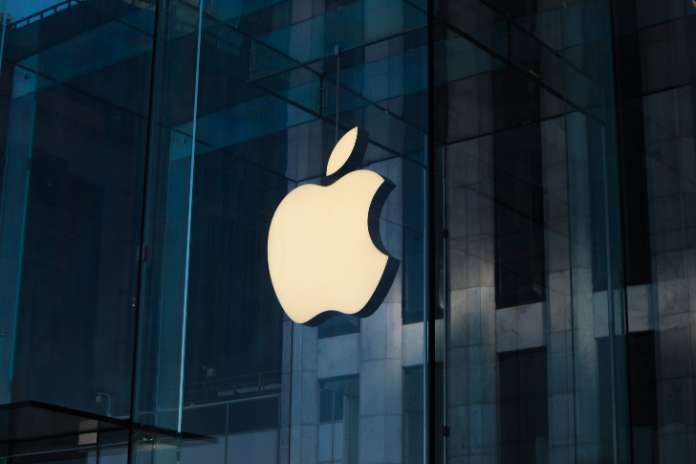Apple Inc. (NASDAQ:AAPL) reported its fourth-quarter earnings on Thursday, delivering better-than-anticipated revenue numbers but with earnings per share (EPS) impacted by a significant one-time tax charge. Apple posted EPS of $0.97 on revenue of $94.9 billion for the quarter. Without the European tax-related charge, EPS would have been $1.64, surpassing Wall Street’s expectations of $1.59 per share. This update provides insight into Apple’s financial performance, particularly as it rolls out its Apple Intelligence platform, aimed at boosting iPhone sales.
iPhone Sales and Services Drive Revenue Growth
iPhone sales were a standout in Apple’s Q4 earnings report, reaching $46.2 billion and exceeding analyst expectations of $45 billion. Apple’s Services division, which includes offerings such as iCloud and Apple Music, contributed $24.9 billion, just shy of the $25.2 billion forecasted. This segment remains crucial for Apple, as it diversifies revenue streams beyond hardware sales. Other segments, including iPad and Wearables, reported revenues of $6.9 billion and $9 billion, respectively, close to analyst estimates.
Greater China revenue, however, came in at $15 billion, falling short of the anticipated $15.8 billion. Apple faces strong competition in the Chinese market from local tech giants like Xiaomi and Huawei, which are rapidly growing in consumer electronics.
The Impact of EU Tax Charge on Apple’s Earnings
A significant element impacting Apple’s Q4 EPS was a one-time charge resulting from an EU General Court decision. Apple was ordered to pay 13 billion euros in back taxes to Ireland, a decision that reduced its reported EPS from $1.64 to $0.97. Without this charge, Apple’s EPS would have comfortably exceeded projections. Despite this financial hit, Apple’s overall revenue strength highlights its robust market position.
Apple shares saw a slight decline of about 2% in after-hours trading following the announcement. While the tax charge created a short-term EPS impact, Apple’s underlying business metrics remain strong, with considerable revenue growth in its key product lines.
Apple Intelligence and the Future of iPhone Sales
A key highlight of Apple’s Q4 report was the performance and potential of the new Apple Intelligence platform. Available exclusively on the iPhone 15 Pro and Pro Max models, Apple Intelligence offers features designed to enhance user experience, with future updates to include ChatGPT integration and Apple’s Visual Intelligence. The platform is currently available only in U.S. English, with plans to expand localized English support in December and additional languages in April.
Apple hopes that Apple Intelligence will help drive a new iPhone sales cycle as consumers look to upgrade their devices to access the latest features. This strategy aligns with Apple’s goal to boost iPhone sales by encouraging upgrades, especially among users with older models.
Q4 Financial Highlights and Outlook
Apple’s Q4 financial report shows that the company continues to grow revenue across multiple segments. With iPhone sales exceeding expectations, Apple’s push into intelligent software solutions like Apple Intelligence could strengthen its competitive position. However, some segments underperformed slightly, such as Greater China and Services, underscoring the need for continued growth in these critical markets.
Apple’s EPS in the same period last year was $1.46 on revenue of $89.4 billion, demonstrating a year-over-year revenue increase. Apple’s ongoing investment in software and services reflects a broader industry trend of hardware companies diversifying their revenue through recurring services.
Looking Ahead: What’s Next for Apple?
Apple’s revenue growth in Q4 reinforces its strong market position, while the rollout of Apple Intelligence has set the stage for future innovations. The next Apple Intelligence update, including ChatGPT integration, is expected to increase consumer interest in the latest iPhone models. With AI-driven features becoming central to the tech industry, Apple’s investment in Apple Intelligence aligns with its vision of delivering a seamless and enhanced user experience.
The impact of the EU tax charge on Apple’s EPS highlights the potential regulatory risks that major tech companies face. However, Apple’s strong iPhone sales and expanding services revenue suggest that the company remains resilient amid these challenges.
As Apple gears up for 2025, the success of Apple Intelligence will be closely watched by investors, as it could drive further adoption of new iPhone models and boost revenue from its ecosystem of services. Investors will also monitor Apple’s progress in China, where local competition remains strong.
Apple’s Q4 earnings report reflects a company focused on innovation and market growth while navigating regulatory and competitive challenges. With robust iPhone sales and the anticipated success of Apple Intelligence, Apple is well-positioned for future growth.
Featured Image: Unsplash © Laurenz Heymann









